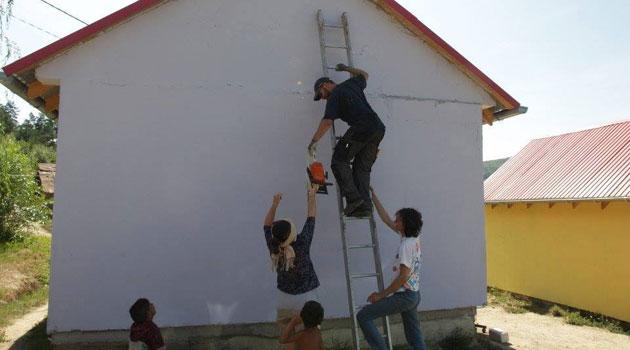Slovak mayor aids Romani settlement and his village by resolving illegal construction situation

Michal Didik, Mayor of Čirč, a community in eastern Slovakia, has recently aided the Romani settlement there, the residents of which have illegally built their homes on land belonging to others. “It was clearer to me than anything else under the sun that the Romani residents would never be buying the land beneath their houses. At the land registry office I ascertained who exactly owns the land beneath the settlement. I was startled by the big number of individual owners – one hectare is owned by as many as 150 people. I personally found each of them and asked them to donate their land to the municipality,” Didik told news server novinky.cz.
The negotiations, according to Didik, took six months, and the result has significantly aided with improving the situation both of the Romani residents and of the municipality as a whole. “These are no longer considered illegal buildings, which means the Roma can repair their houses now – for example, their roofs. It was not possible to legalize these hovels as long as the land issue was unsettled, and it was therefore not possible to extend the asphalted road, running water delivery, or the sewers into the settlement. A few years from now you won’t be able to recognize the settlement,” said the mayor, who considers transferring land ownership to the municipality to be the best solution to the settlement dilemma.
If the land had been donated to the Romani residents, Didik said they would have quickly lost title to it because they are the targets of collections procedures due to their indebtedness. The area beneath the settlement now belongs to the municipality, which is leasing it to the Romani residents.
The municipality is charging EUR 0.25 per square meter per year for the plots. The lowest rent being collected is EUR 2.50 and the highest is EUR 45 for the family leasing the biggest plot.
“Whoever does not pay the rent on time will have the back rent deducted from his or her public benefit work salary. The Romani residents have already comprehended that they cannot live in debt, they must pay to lease the land and pay for their garbage collection. They have the same rights as all other citizens, and they must meet the same obligations as all other citizens, including their financial ones. There will never be any order here otherwise,” said Lívia Knapíková of the local authority.